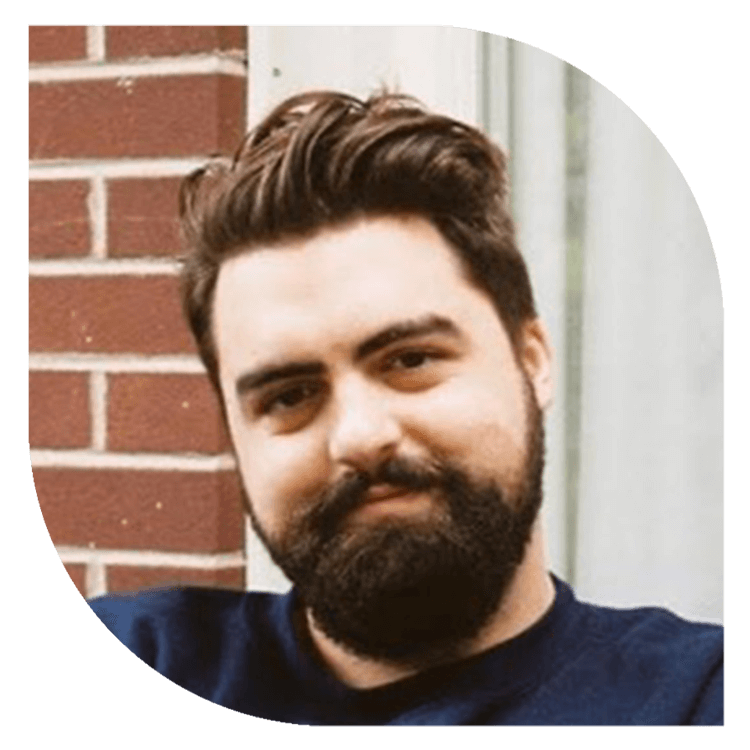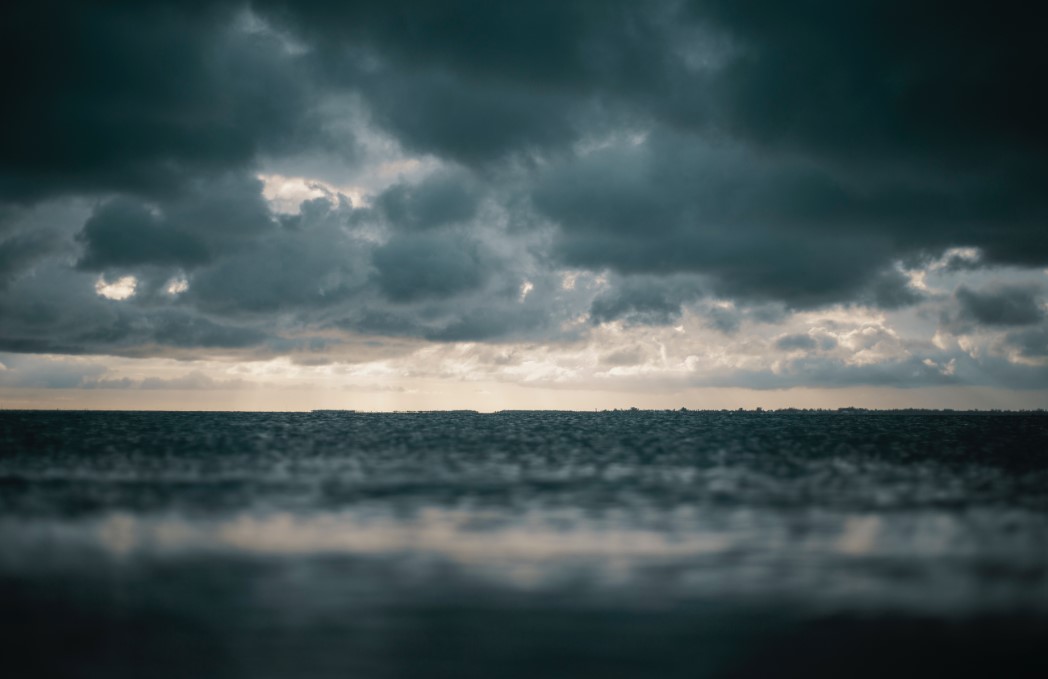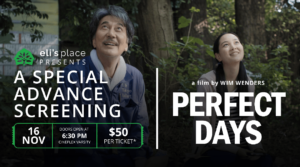Content warning: This article deals with addiction and suicide ideation.
I started my regular morning routine by vomiting bile in the shower. I watched the water run over the cuts and scars that crisscrossed my shaking arms. I accidentally caught my own eye in the bathroom mirror, but quickly averted my gaze. I hated myself. I hated what I had become. I wanted to die. I wanted to drink. I wanted to disappear.
As the car pulled up, I filled a plastic water bottle with rye and then stepped out to join my father in the back seat. We didn’t speak the whole way to the airport. I began to shake and sweat as we checked our luggage. My head pounded on the long walk to the security gates. Before we went through, I ducked into the washroom to finish off the rest of the rye. If I had known then that it would be the last drink I would ever have, I might not have had the courage to set foot on that plane.
The five-hour flight found us across the country. I had tried to order a beer, but the flight attendant misheard me and left me with a bad case of delirium tremens on arrival. The withdrawal was almost unbearable at baggage claim. I choked on a cigarette before climbing into our rented car for the short drive to the facility. I will always remember my father telling me, “We’re here. You’re safe now.”

My story of alcoholism began long before I took my first drink.
I grew up in a nuclear family. We were well off. I attended private school, played sports on the weekends, and went to camp in the summer. My parents were loving and my brothers were dear close friends. Ostensibly, I had no reason to turn into the lifeless drunk that I became. But addiction doesn’t discriminate.
People from all walks of life turn to substances, and many share the similar feeling of anxiety and loneliness that I felt growing up. Regardless of my upbringing, a looming fear permeated through even the most comfortable aspects of my life. I had many friends, yet I felt that I did not fit in anywhere. I was outwardly confident, yet uncomfortable in my own skin. This was the feeling that eventually drove me to such extreme measures to seek oblivion.
Many alcoholics will tell you that they remember their first drink. While I don’t remember mine, I will say that alcohol began to play a role in my life as young as 12 years old. I remember well the first time I used cannabis at age 14, the first time I used cocaine at age 16, MDMA at age 18, and Xanax at 19. Every time I found something new that could change the way I felt, I radically changed my life to include it.
Throughout high school, my drinking became more frequent. I left the “stuck-up” private school for a public school in Toronto that better suited my increasingly chaotic lifestyle. At this point, drinking was mostly confined to the weekends. However, I would occasionally treat myself to three or four beers on the odd Wednesday. I had acquired a reputation as a heavyweight, which I was determined to maintain.
After getting accepted at my first choice of university for my undergrad, I experienced the first consequences of my drinking. Having become a staff member at the summer camp I attended as a child, I was fired after the director found a stash of empty bottles under my bed. Up until this point, alcohol had only brought me positive experiences.
Entering into my first year of university, I was ecstatic to be in a place where it was acceptable to start partying on Thursday. But this behaviour was not without consequence. I was kicked out of residence after only two months due to issues directly related to my drinking. I rented a basement apartment off-campus and, isolated from my friends, I began to drink alone.
Each year it seemed that there were more excuses for me to get drunk. Wednesday was trivia night at the student bar. Tuesday was karaoke. Monday was the start of the week, and a few beers could relieve the stressful anticipation. Now living in a house with six of my closest friends, I always had someone to drink with. I didn’t realize at the time that I was the only one going out every possible night.
Following my third year, drinking became a daily thing. I had stomach issues that could only be relieved with a stiff glass of rye. I feared leaving the house. My anxiety was so bad that I hardly went to class anymore. The only thing that made me feel “normal” was having a drink. Eventually, even alcohol wasn’t enough. I entered a period of extreme depression, during which I found a new way to alter my mood. Cutting was the natural next step. I was offered a way to feel something, to release my pent-up emotions, to punish myself for feeling them, and to have just an ounce of control over my body. I felt so extremely isolated from the world that this behaviour seemed normal to me.
Of course, my friends noticed the deep cuts that covered my arms. I became a master of deflection. They confronted me about my drinking, but I was too drunk to care. I withdrew from school in the summer following third year and moved in with my dad. I tried my hardest to push everyone away. In the summer months of 2017, I spent all of my time either at the liquor store, at the hospital, or drinking alone in my bed. At my worst, I was drinking a 40oz bottle of liquor every day. That old feeling of relief was long gone. I was an empty shell of myself.
I only saw one way out of the agony I experienced daily, and so I attempted to take my life. I still remember drifting off, and the last thought going through my head: “I hope I don’t wake up tomorrow.”
Luck intervened, as I had passed out with my open wrist faced down on the bed. The cuts had clotted against my bed sheets, and I had survived. After a trip to the hospital, my drinking routine began again. Hopeless, and unsure of whether I wanted to live or die, I decided to seek help.
The catalyst was no worse than any of the other terrible things I endured that summer, but it was significant enough to me: I awoke one morning to find that my tongue was covered in white flakes. After sending a photo of the uncomfortable condition to a close friend, her mother called me immediately. An experienced addictions doctor, she explained to me that I had developed an oral thrush (a type of yeast infection in my mouth) indicating that my immune system was shutting down. If I didn’t stop drinking, I would die. Ten minutes after receiving that call, I was in a cab to the liquor store. For the first time in my life, I realized that I was completely powerless over alcohol. Staring my own mortality in the face, I couldn’t stop. A counselling organization in North York referred me to a treatment centre on Vancouver Island, and a week after my first appointment I was on a plane to Nanaimo where I would take my first steps toward sobriety.

I had come to treatment after a two-month bender of daily drinking.
I still credit the organization which referred me to treatment with saving my life. I continued therapy with them long after I returned home. The treatment centre I attended was a perfect match for me. To this day, I stay in touch with many close friends I met there. I learned many things about my condition. Addiction is an insidious disease. It deludes the mind into denying its own existence. It is progressive, chronic, and—if left untreated—fatal. The personalized care that I received made all the difference in the world.
While I had endured an unbearable existence for the months leading up to my time in treatment, I still fought against the help that they offered me. The idea of leaving the lifestyle I was so accustomed to was terrifying. I couldn’t imagine my life without substances. Without alcohol I had no identity. I was filled with skepticism and contempt for a manner of living that I had not even investigated.
My second night in treatment, I attended group therapy. I took a seat in the circle and stared down at my shoes to avoid participating. I was closed off: afraid to share myself with others; afraid of judgement and rejection. I was ready to spend 60 days in silence and return to my old life. That silence was broken by a young woman who began to share. She told stories of hiding bottles around her house, always keeping a steady supply on hand, drinking alone, harming herself, sustaining a string of dysfunctional relationships, and many more behaviours typical of alcoholics. She shared about the lingering anxiety that had been with her since she was a child. She told us what it felt like to find that she could drown it with booze. If I could capture a photograph of my face at the end of her share, I would treasure it forever. I was awestruck. For the first time in my life, someone had told me my own story. For the first time in my life, I felt like I was no longer alone.
I didn’t change everything right away. Treatment is a non-linear process. I maintained a rigid negative attitude of closed-mindedness for a very long time. It took a consistent barrage of positivity to change me. I would hear little things here and there that found their way past the emotional wall I had constructed over years of self-preservation. My peers would tell me things such as, “Your best thinking got you in here.” Slowly but surely, I began to surrender. The fight was too exhausting. Maintaining my misery took too much effort and I eventually gave in. I started to take the suggestions that were given to me. I started to imagine a life of recovery. I started to believe that it could work for me.
Shortly after surrendering, something amazing happened: I started to feel happy. The unfamiliar feeling crept back into my life. I became afraid of losing it. I became protective of that lost emotion. I decided that it was worth fighting for.
A journal that I kept documented my change journey. Initial entries scoff at the concept of an alcohol-free life. The first days read like the diary of a child: unwavering in attitude; determined to maintain a destructive lifestyle; addicted to chaos.
The shift in my mindset is perceptible in those pages. I repaired relationships on late-night payphone calls. I learned how to forgive—and even begin to love—myself. I wrote down quotes that resonated with me. The dates that I recorded routinely at the top of each page as a testament to the time I’d spent in treatment became less frequent, and were eventually replaced with the saying: “Don’t count the days, make the days count.”
At the end of my stay, I was bare-faced and small. I was shattered, unbroken, and sprouting anew. When it was all over, I cried. I was afraid to return to the outside world. I was sad to leave the close community I had built. But mostly, I was excited to begin the process of starting over.

Returning home was not easy.
The slate wasn’t clean. Rebuilding trust is a process, and I blame no one for their skepticism. I worked a daily program of recovery and reached out for help often. I made amends to those I had harmed. Wherever possible, I righted the wrongs I had done. I had hurt many people in my drinking, and I didn’t expect forgiveness.
The magic of recovery comes from rigorous honesty, open-mindedness, and willingness. Putting my faith in the process, things turned around faster than I could have ever imagined. In my first year of sobriety, I lived at home with my dad and dug holes for a living. In my second year, I returned to school to finish my degree. In my third year, I began working as an addictions counsellor. In my fourth year, I started my master’s degree in Social Work at the top university in Canada. Today, I work as a therapist and counsellor at the very organization that once sent me off to the treatment centre that saved my life.
I do not say any of this to brag about the turn my life has taken. I only wish to convey the things that are possible when one embraces recovery. I owe everything to the people who helped and supported me throughout my journey. Without them, I would likely not be here today. Because of the help I was so freely given, my life is filled with friends, love, fulfillment, and joy. I am grateful every day for my experiences, and I wouldn’t change a single thing about my past. This journey has taught me to be a better person, to become outwardly focused, and to live life on life’s terms. I urge anyone who is struggling to remember that there is help if you seek it. I pray you become ready and willing. For now, I am with you in the Fellowship of the Spirit, and you may meet me as you trudge the Road of Happy Destiny. May you be blessed and kept—until then.
Eli’s Place will be a rural, residential treatment program for young adults with serious mental illness. To learn more about our mission and our proven-effective model click here.

Ted Boyle | Eli’s Place Volunteer
Ted is a Master of Social Work student who works in mental health and addictions. He has been sober since August 31st, 2017, and uses his lived experience as an essential asset in his work.




